Biopics you should watch if you liked OPPENHEIMER
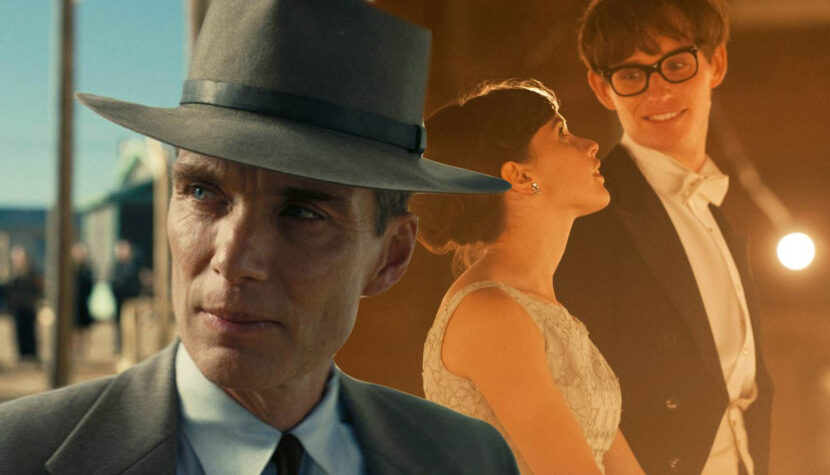
Christopher Nolan’s latest film is the essence of this director’s style, and at the same time something that surprised even his most faithful fans. Oppenheimer is an event, a spectacle of dialogues in which visuals, sound, acting and phenomenal direction play extremely important roles. However, this is a production that is mostly based on the conversations of the characters. This allows you to go deep into the mind of the title physicist, inventor of the atomic bomb. Nolan bombards us – literally and figuratively – with the quality of the technical elements of his film. At the same time, despite a much better level than usual, the whole stumbles on several layers of screenwriting and drags the film a bit. But I forgave it, because I was absorbed in the atomic spectacle. Especially in the nuclear test sequence, during which I was really afraid that something would happen in the cinema itself. However, building tension couldn’t succeed if the film was effective all the time – this moment had to resonate appropriately, hence the concept of the narrative. Looking from this perspective, I have chosen for you productions based on biographies, which are to some extent similar to Oppenheimer in terms of concept, climate, and the way of narration.
A Beautiful Mind
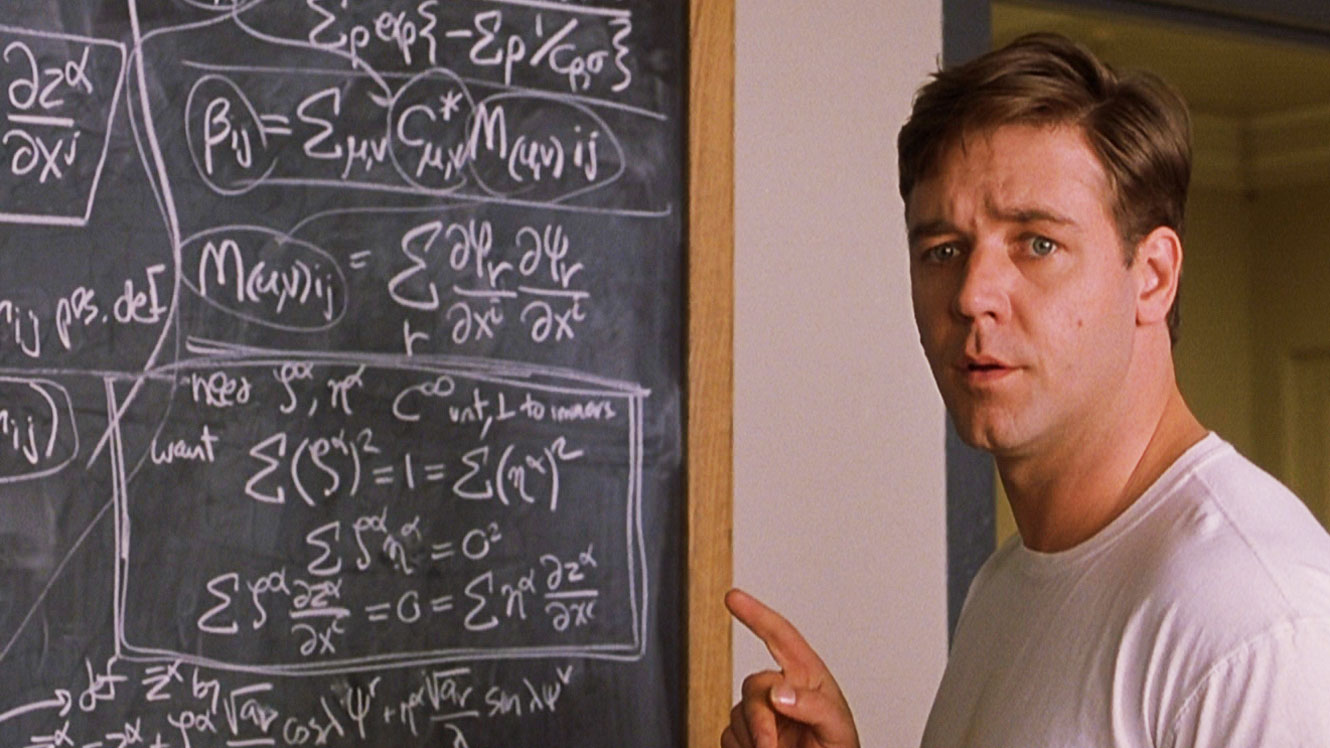
The most famous film in this article, the most critically acclaimed and the closest to Oppenheimer. Narratively and tonally, however, this production is diametrically opposed to Christopher Nolan’s. I chose it, however, because it deals with similar problems of the biopics of scientists. And without a doubt, it is an unsinkable classic with a very good, still impressive plot twist inside. It is also worth coming back to it because A Beautiful Mind still stands for the excellent acting of Russell Crowe, Ed Harris, Jennifer Connelly and Paul Bettany.
Sully

Films about significant events in US history are treated as sacred in Americ. In the case of Clint Eastwood’s film, there is also an obvious glorification of the character who has become the latest icon but, strangely enough, in this case it is done in a skillful, quite scathing and above all engaging way. The story of the landing of the US Airways plane on the Hudson River on January 15, 2009 is a pretext for the director to show the scheme of creating a media figure, which became Chesley “Sully” Sullenberger. A modest, sedate and honorable man turns out to be a real, fulfilled, one could say this American-dreamed hero. Not only that – the creators prove at every step that it deserves this status. This is intensified by the fact that the shadow of the September 11 tragedy can still be felt in the background. And here begins a small drama of the hero who, having become America’s chosen one, begins to have doubts about his own decision. There are several reasons for this, among others the rightness of his actions begins to be undermined by the representatives of the National Transportation Safety Board conducting the investigation. This part of the film is the Achilles heel of the picture. During the screening, every rational viewer can clearly see what the commission’s mistake is, and its remorse at the end is artificial and unconvincing. However, another aspect seems interesting – Sully’s doubts are mainly due to his character traits. The hero is indeed flawless. He takes into account that despite all the media hype, lifting his character, he himself could really have made a mistake. However, the picture gains momentum during the scenes recreating the ill-fated flight itself. Emotions, dose of tension – here Eastwood verges on genre genius. Viewers know the ending, and yet, each shot is watched with bated breath. Amazingly, even when the events from the cockpit are shown several times from a different perspective. It is a peculiar phenomenon, which honestly … is difficult to explain. I believe success lies in simplicity. The creators do not focus on showiness, they do not dazzle with CGI, but they allow the viewer to become one of the participants of the flight. Most of the shots are shown from inside the plane. Do you know a similar atmosphere of building tension from somewhere?
Kinsey
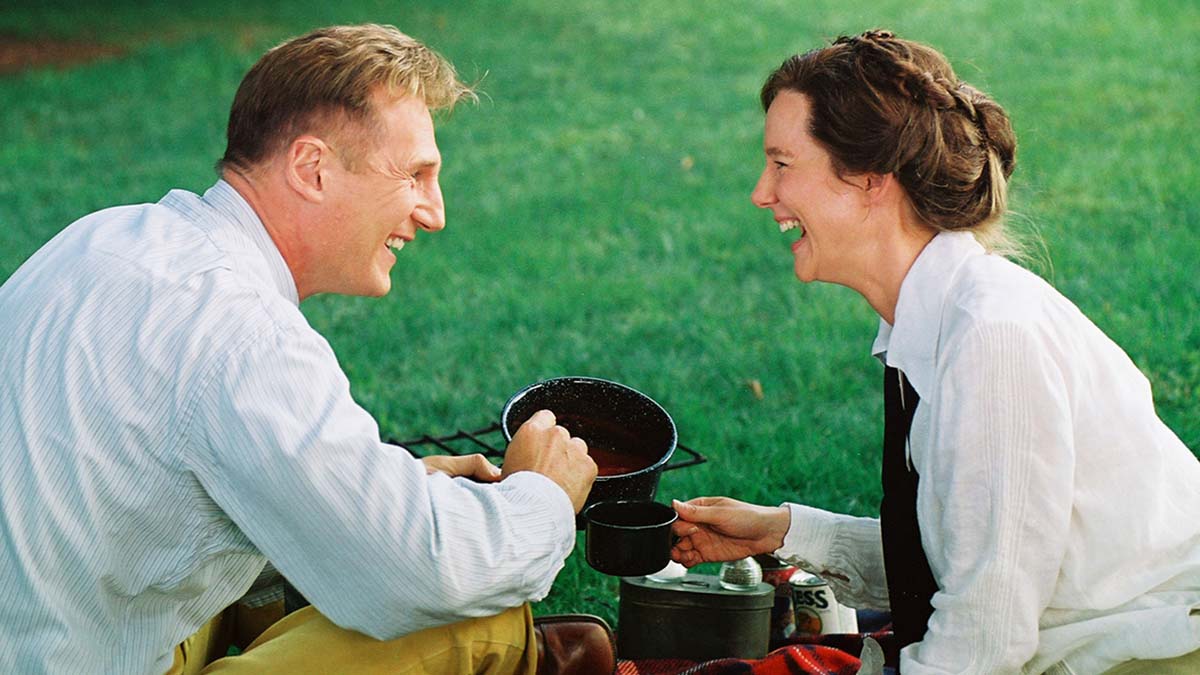
Probably the least known and noteworthy film on this list, with the good role of Liam Neeson from before the era of the action star icon. Kinsey is the story of one of the first revolutionaries in the field of the studies of American sexuality. Bill Condon’s film shows both the research of the title researcher, Alfred Kinsey, and the problems he encountered on his way. I consider this element to be the most valuable and interesting in the whole film. It’s a solid movie that perhaps lacks something to be very good and therefore, like Kinsey himself, is somewhat forgotten.
Ford v Ferrari
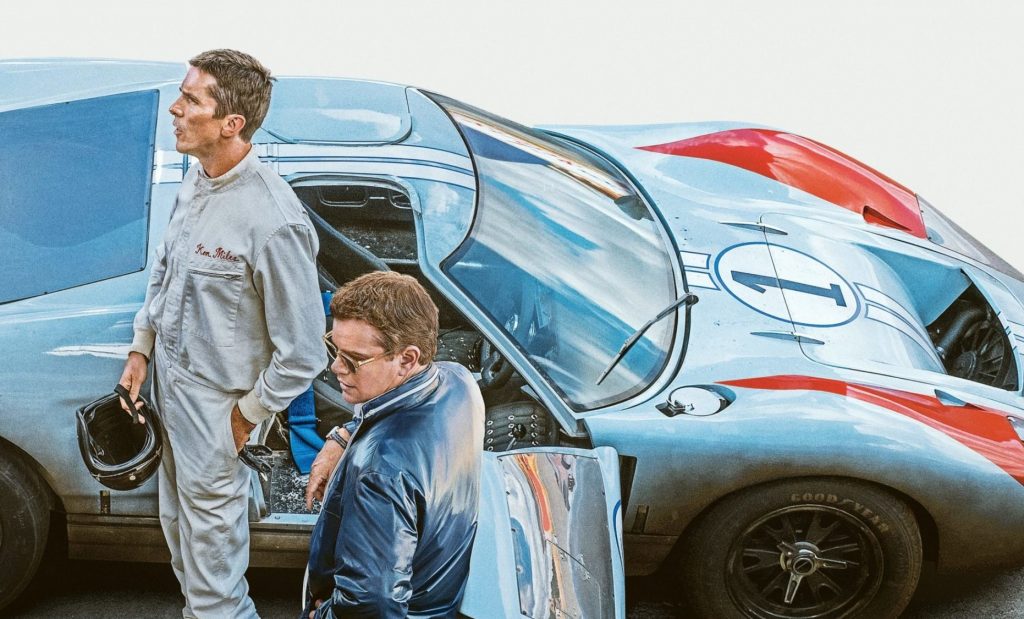
In order to make such a universal film about passions, smelling like gasoline, bursting with tension and adrenaline, you need to be a good filmmaker. James Mangold is such a creator. There is such fire, drama and tension here that you can feel these twists and turns. Here I see an association between Ford v Ferrari and Oppenheimer – especially between the sequence preceding and showing the Trinity test and Le Mans ’66. Visually and sonically it is a masterpiece. The acting is also incredible – Bale is in a life form, the real surprise for me, however, is Matt Damon. I haven’t seen him in such a good role for a long time. The only thing that annoyed me was these political, ideological races. They didn’t add anything to the plot, because it’s a treatise about passions and individuals. Just pure driving, adrenaline, the smell of burning wheels and people with passion, burning eyes would be enough.
The Theory of Everything
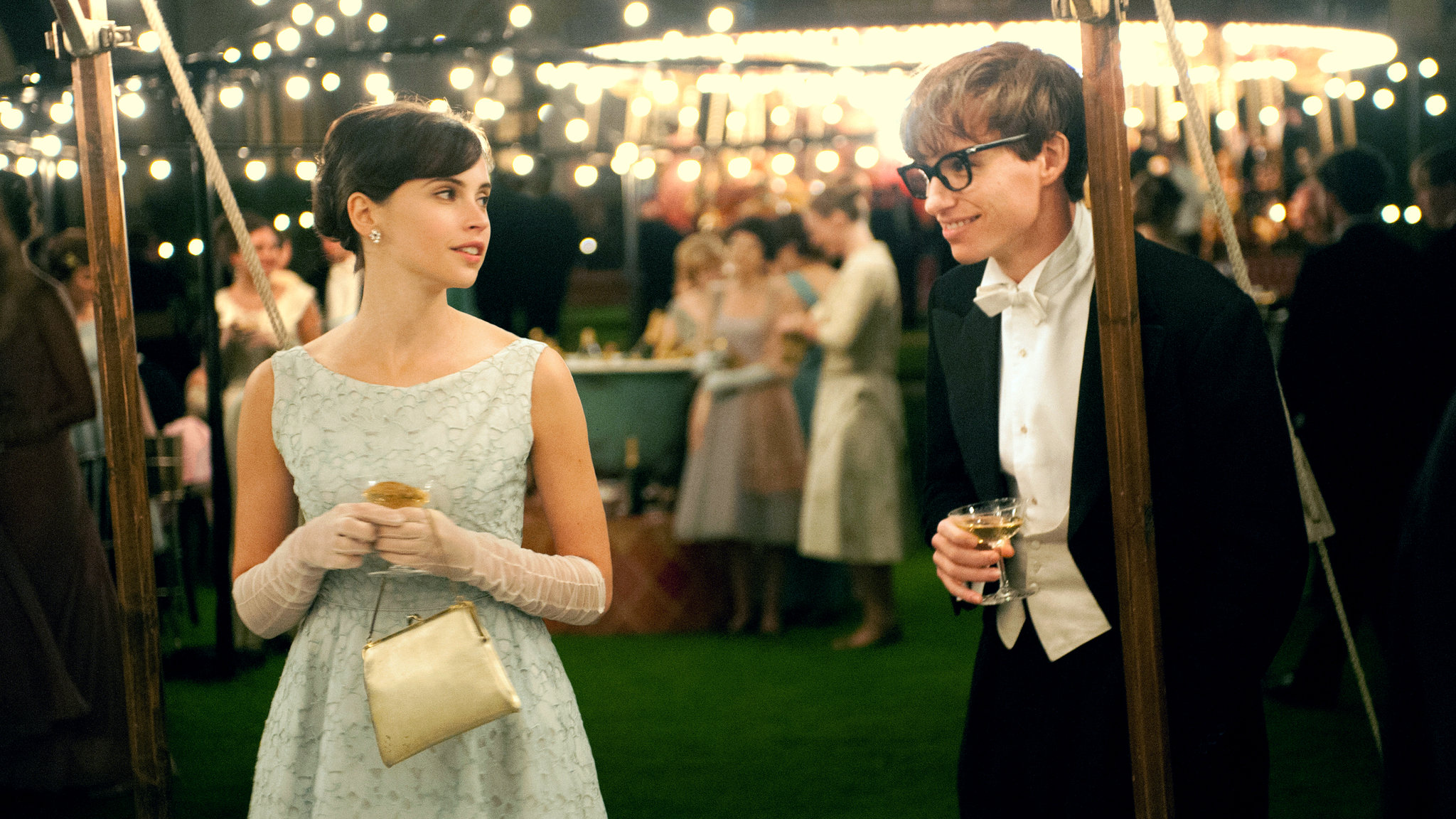
The film about Stephen Hawking is one of the best productions about the great figures of science. Great credit goes to Eddie Redmayne – he used his specific acting skills spectacularly and with great intuition to depict an outstanding theoretical physicist who undoubtedly revolutionized our view of the world. Felicity Jones, known from Rogue 1, is a great partner for him. The whole thing is built around the life of a fascinating character of Hawking – a drama related to an incurable disease and the values that guided him. A movie worth your time and attention. Touching and smart.
King Richard

I’m not a big fan of Green’s film, because it’s a very schematic, painfully predictable and incredibly American biopic. Technically, though, it’s a good movie. He is on the list because it scrutinises the eponymous, debatable character well, tries to get inside him, tries to show his true motivations. I feel sorry for the way the Williams sisters are portrayed here. Their usual adolescent problems, conflicts, tensions and clash with their father, who imposes and decides for them in every possible aspect, are completely absent from Green’s film. So it’s a kind of lie – I just don’t believe Venus or Serena did not ever go against their father, unless there are aspects the story doesn’t talk about. If you look objectively, the whole life of the famous sisters takes place outside them, it is the implementation of their father’s plan, which is full of complexes, fear, but also amazing, sometimes even annoying and … impressive stubbornness. The second part of the film definitely drew me in more – the plot of creating a myth around the daughters before they even went to court was intriguing. Marketing masters should follow the example of how to create a product. Because unfortunately Venus and Serena are products here, androids with rockets in their hands. Despite the underlying suspicions and the feeling that something has not been revealed to us here, the whole thing looks really good, you watch it with considerable commitment. It’s just a well-made cinema, maybe a bit stretched in some moments, and shortened in others, but it works on the level of emotions and the character. Americans are masters of creating feel good stories. They know how to create a myth, find an interesting personality and adapt it to their needs.
Richard Jewell

Another Clint Eastwood production is a really solid biopic. It’s a pity that Richard Jewell has only a few moments of tension (but what ones!), it is definitely missing throughout the film. Nevertheless, the whole is constructed on similar narrative mechanisms as Oppenheimer – there are a lot of dialogues scrutinising the psyche of an unconventional hero. Eastwood’s production is also as usual at a good acting level, but the master does not let his artists go too crazy. For me, it’s a production of the same shelf as Sully or J. Edgar – as if Clint wanted to create his own American universe of essential films. They don’t go beyond being solid productions however. They stand out for one thing – brilliant moments. Richard Jewell is also another proof of what an acting beast Kathy Bates is – her scene with the speech is an absolute artistic top. And I guess that’s what Eastwood wanted – for these moments to resonate, he wanted to show the mechanisms, the way the system works and what can happen to a hunted person. Therefore, although these productions are devoid of fireworks, they fit into a certain standard and level of Clint’s heroic cinema of recent years.
The Last Family
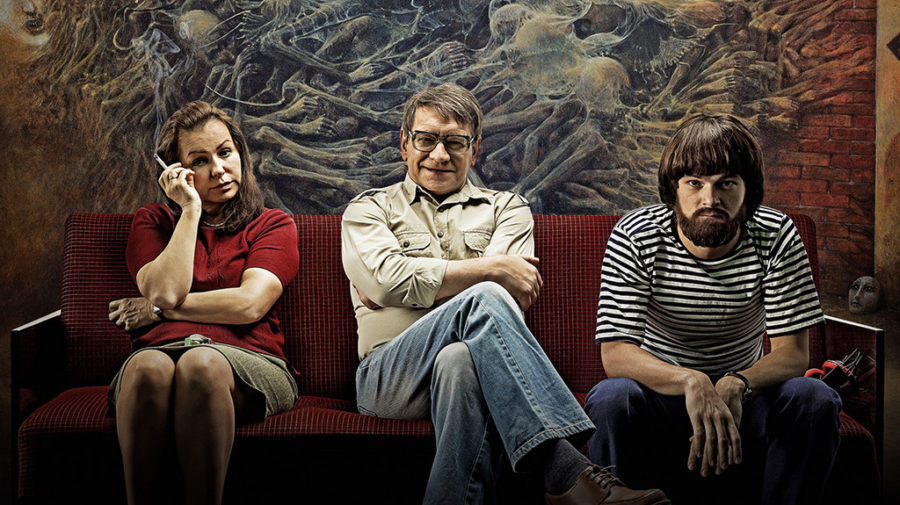
There must have been a Polish accent in my text. I chose The Last Family. I have to admit that there was a moment, somewhere after a dozen or so minutes, when I felt really tired of the film’s narrative. Or rather the lack of it. There is no classic storytelling here – the viewer is rather cast in the role of a passive observer, a bit like watching a documentary, where you enter the world of really exotic animals and the narrator tells you to be quiet so as not to scare them away. With each subsequent moment, however, I began to understand and enter into specific relationships between the individuals that make up the Beksiński family. I began to pay close attention to non-standard displays of emotions, feelings, bizarre recording of life on VHS, explosions and conversations. Well, the creators managed to capture what a truly artistic family it was. And in every possible shade of black, white and grey. This stopped me, allowed me to absorb the amazing acting of Seweryn and Ogrodnik. The human image itself is also amazing – its hermeticity, the Beksinskis’ confinement in their bubble of singularities. In The Last Family, times and experiences change, and they persist in their behavior, eccentricity, problems, they go even harder and further. This detachment from reality and grotesqueness are brilliantly captured by Matuszynski. The dramatic nature of the Beksinskis’ fate and their tragic finale do not leave the viewer indifferent, because for almost two hours he got to know them so well that he felt like a member of their last family. Such as those grandmothers who live on the side somewhere and whine over their subsequent excesses.
Air
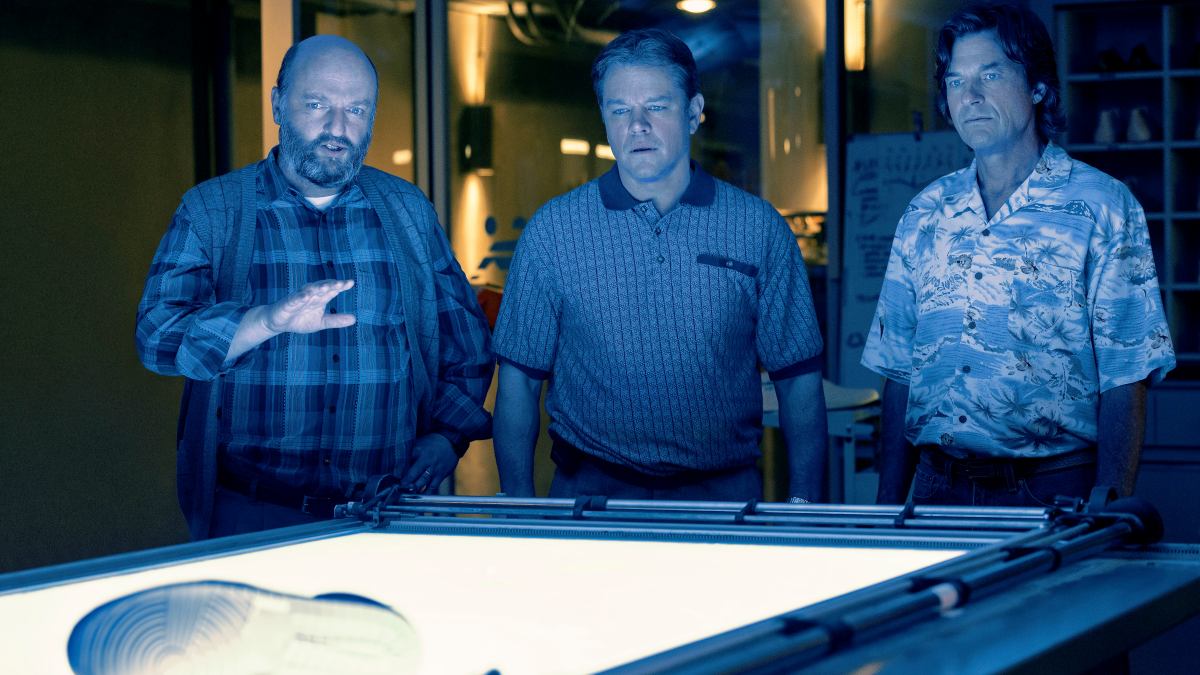
Air is a very schematic, feel good movie based on proven patents, but once again it proves that Hollywood can make such cinema like no one else in the world. Everything is sprinkled with nostalgia, Easter eggs, and the whole thing comes out with lightness and surprising honesty anyway. Does it have more in common than being a film based on a biography? And they know how to make a film that best portrays the Michael Jordan phenomenon… without showing Michael Jordan on screen. Interesting solution.

